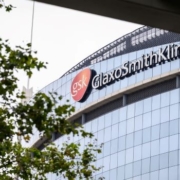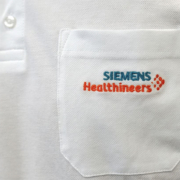AVEO’s Fotivda combo flunks Phase III renal cell carcinoma study
AVEO’s Fotivda combo flunks Phase III renal cell carcinoma study
AVEO Oncology on Thursday announced that its oral drug Fotivda (tivozanib) fell short of its primary efficacy endpoint in the Phase III TiNivo-2 study in renal cell carcinoma.
The Boston, MA–based biotech did not provide detailed data in its news release, only revealing that relative to Fotivda alone, the combination of Fotivda with Bristol Myers Squibb’s PD-1 blocker Opdivo (nivolumab) did not significantly prolong progression-free survival in renal cell carcinoma (RCC) patients who had progressed after prior immune checkpoint inhibitor (ICI) treatment.
Still, AVEO struck an optimistic note in its announcement. Looking at the control group, which received only Fotivda, the company pointed to a “clinically meaningful outcome” in median progression-free survival in the second-line setting, “following ICI combination therapy.”
These specific results, according to AVEO, “further support the approved use of FOTIVDA as a safe and effective treatment option in relapsed or refractory advanced RCC following two or more prior systemic therapies.”
The company added that it will reveal more detailed findings and analyses from TiNivo-2 at an upcoming scientific congress.
Fotivda is an orally available next-generation tyrosine kinase inhibitor targeting the vascular endothelial growth factor receptor (VEGFR). The drug selectively acts on VEGFR-1, -2 and -3, which in turn inhibits cancer cells’ ability to induce the formation of blood vessels to nourish the tumor. Fotivda’s mechanism of action also interferes with tumor growth and vascular permeability, according to its label.
In March 2021, the FDA signed off on the use of Fotivda for the treatment of relapsed or refractory advanced RCC in adult patients. In its current indication, Fotivda is prescribed as a monotherapy and can only be used in patients who have undergone at least two prior lines of therapy.
With the TiNivo-2 trial, AVEO is assessing the potential clinical benefit of adding a PD-1 inhibitor to Fotivda, and the potential of this combo regimen to move up to the second-line setting.
“We consider the control arm data an important, evidence-based and clinically meaningful contribution to the oncology community treating relapsed or refractory advanced RCC following front-line ICI combinations,” AVEO president and CEO Michael Bailey said in a statement.
AVEO’s Phase III disappointment on Thursday follows a similar failure by BMS, which in January 2024 reported that Opdivo did not significantly boost disease-free survival in localized RCC patients versus placebo in the Phase III CheckMate-914 trial.
In contrast, Merck appears to be making strides in RCC, with its HIF-2α inhibitor Welireg (belzutifan) winning the FDA’s approval in December 2023 for patients with advanced disease who had previously been treated with a PD-1 blocker and a VEGF inhibitor. A month later, the pharma’s blockbuster drug Keytruda (pembrolizumab) also secured a late-stage win in RCC.
Source: BioSpace










